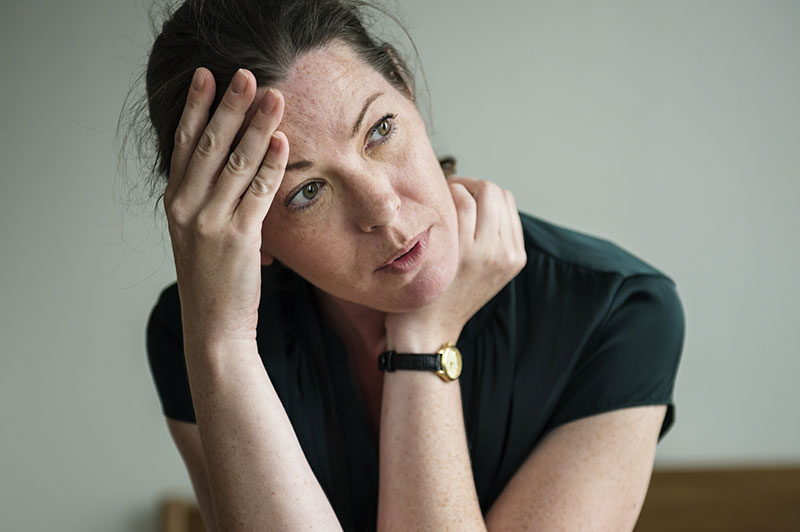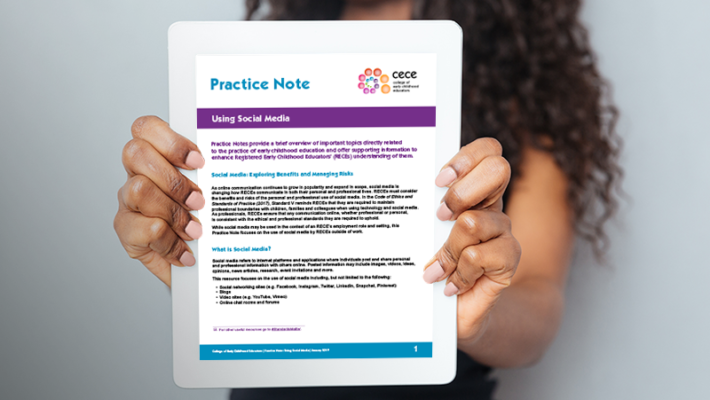Stress at work can happen in any employment setting; however for RECEs, if not properly managed, stress has the potential to lead to unprofessional practice decisions.
Did you know? Failing to support positive interactions with children is one of the most common complaints the College receives.
Ugh! I’m having a tough day
You’re required to make complex ethical decisions and navigate “messy” and uncertain situations on a daily basis. Sometimes having a stressful day on top of managing the complexities of practice can lead to feeling frustrated. Using professional judgment to deal with instances of frustration in practice is critical; otherwise unacceptable interactions could have a negative impact on a child, their family or your colleagues.
Causes of stress
There are three types of stressors the College sees frequently in relation to complaints of unprofessional conduct. The source of the stress is typically related to personal, professional or systemic factors.
Examples:
- Personal — Blake is going through a separation and is now a single parent of a 6-year-old. This has caused a lot of stress for Blake who is struggling to be patient and fully engaged with the children in the practice setting. This is noticed by a child who makes a comment to their parents.
- Professional — Charley has a new supervisor and is having a hard time forming a relationship with them. They do not see eye-to-eye on approaches to pedagogical practice. One day, the supervisor comes into the room to observe and makes a comment that Charley does not appreciate. Charley gets angry and swears at the supervisor in front of the children.
- Systemic — Laura has had to get a second job working in the evening to supplement her income. Last night, she had a late shift at the restaurant but agreed to come into the centre early the next morning because they were understaffed. As the day goes on Laura begins to feel very tired and gets easily frustrated with the children. She eventually loses her temper and aggressively grabs a child who does not want to come inside after playing outdoors.
Different stressors can have a different effect on each individual and can influence how you react to frustration in the workplace.
The Complaints Committee says…
Many of the cases the College’s Complaints Committee sees include those where RECEs have used unprofessional language or have roughly handled a child at the peak of frustration. It’s important to remember that abusing a child either emotionally, verbally, physically or psychologically is considered professional misconduct.
In the cases reviewed by the Complaints Committee, members often provide the following explanations for acting unprofessionally due to stress:
- “There’s too much happening in the room — how am I supposed to handle all of this?” This can be indicative of RECEs who feel under-equipped for the practice setting.
- “What else was I supposed to do?” It could be interpreted as the RECE felt there were no other options; they were unable to react appropriately to the situation or did not feel empowered to do so. This could be due to a workplace policy or perceived lack of support by their supervisor or colleagues.
- “I was left alone to handle all of the children” or “My colleague didn’t tell me she was leaving the room for a few minutes.” This often relates to a lack of communication or misunderstanding among RECEs working together.
- “Ugh — I wouldn’t ask my room partner for help — they’re useless!” This may mean that colleagues aren’t getting along or working effectively together. The lack of communication and collaboration can leave an RECE feeling like they have to deal with situations on their own.
- “I have so much on my plate…I don’t have any time to unwind.” This could be attributable to the RECE not having a self-care plan or a strong support system.
Because of the impact of these actions on children, families and colleagues, the Complaints Committee takes these complaints seriously. They can, among other decisions, require a member to attend at the College for a verbal caution or refer the matter to the Discipline Committee for a hearing.
In less serious cases, the Complaints Committee, in its written decision, will often encourage members to incorporate a learning goal and engage in activities for their Continuous Professional Learning that would support positive interactions with children. For example, thoroughly reviewing the Practice Guideline: Supporting Positive Interactions with Children can help you enhance strategies for developing responsive relationships with children and coping strategies for dealing with personal and professional stress.
Collective accountability
Collective accountability means that RECEs hold each other accountable and support each other. An example of collective accountability is not letting a colleague flounder when it’s obvious they need assistance. If you’re getting frustrated in the moment and a colleague offers support — take it! Accepting help from colleagues can cultivate strong professional relationships that are grounded in trust and accountability. Strong relationships help you to feel less alone when dealing with stressors that may affect your professional judgment or practice. These relationships demonstrate that RECEs are leaders who place the well-being of children and families at the forefront. Alternatively, providing support to colleagues is also a way of demonstrating leadership within the profession.
Ultimately, as an RECE, it is your responsibility to pause, reflect and seek assistance when you feel like things are escalating and you’re getting angry, frustrated or upset.
Reflection Questions
Below are questions to assist you in reflecting on the types of stress examples involving Blake, Charley and Laura:
- What are the factors that led the RECEs to negatively demonstrate their stress or frustration?
- How could these factors affect other RECEs in the same room?
- Are there some factors that are easier to manage than others? Why or why not?
- Imagine that you’re Blake, Charley or Laura. How would you have handled being in their situation?
- If you were a colleague of Blake, Charley or Laura, how could you have supported them?
- How could any of their behaviours have been guided by the Code of Ethics and Standards of Practice?
- What supports are available in your practice community that could assist you in managing stress in a professional manner?
- What are some strategies that you use to support yourself when you start feeling stressed or frustrated in practice?




